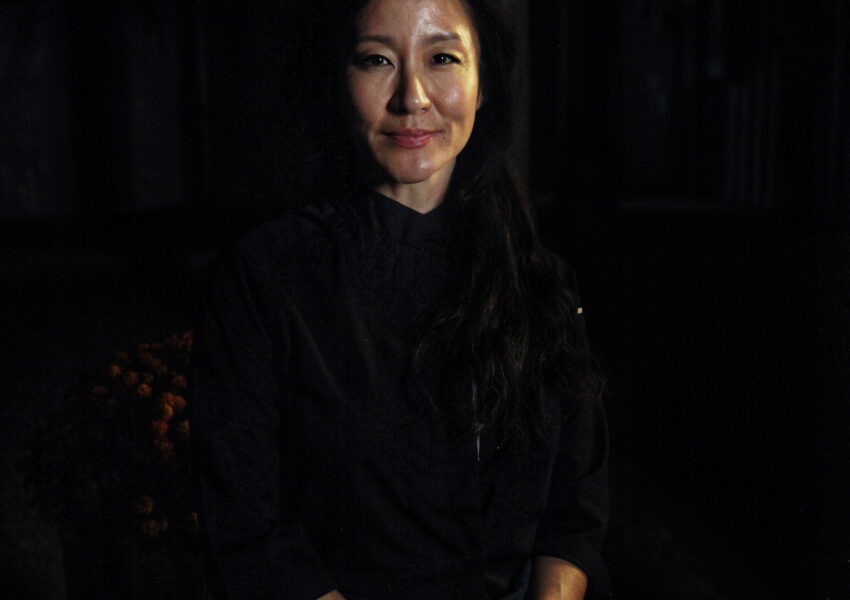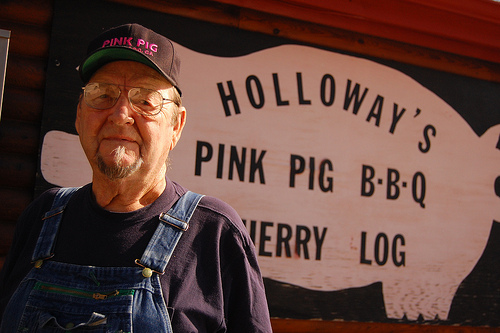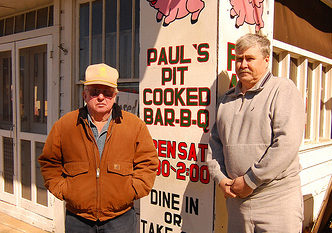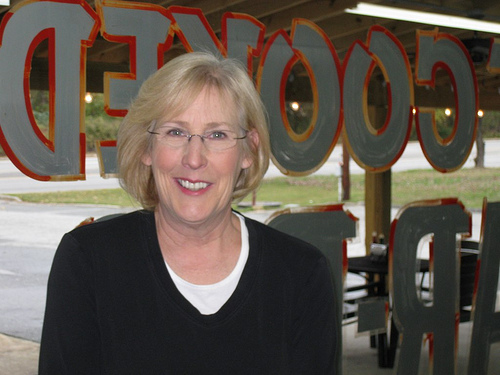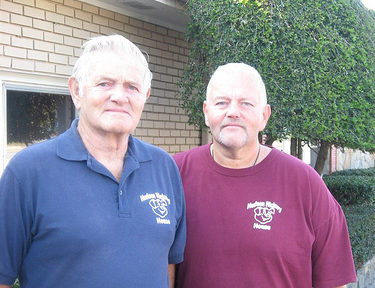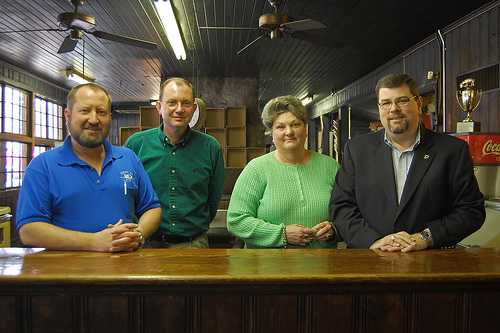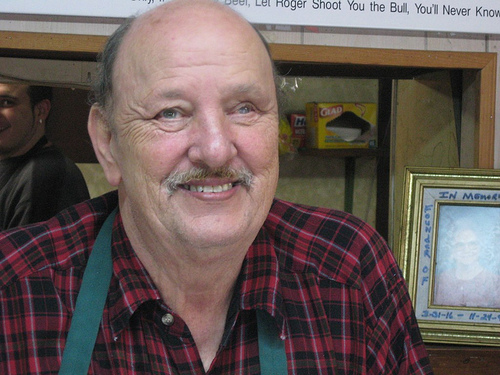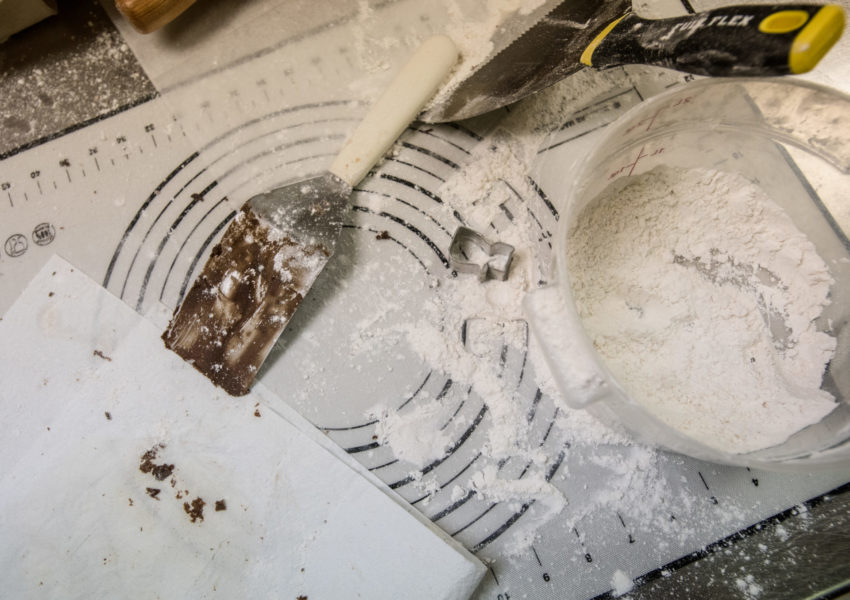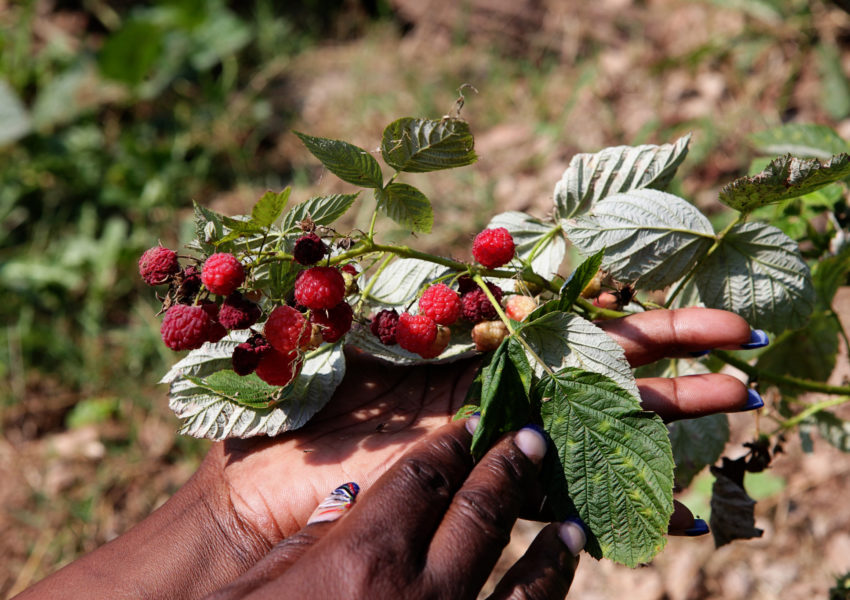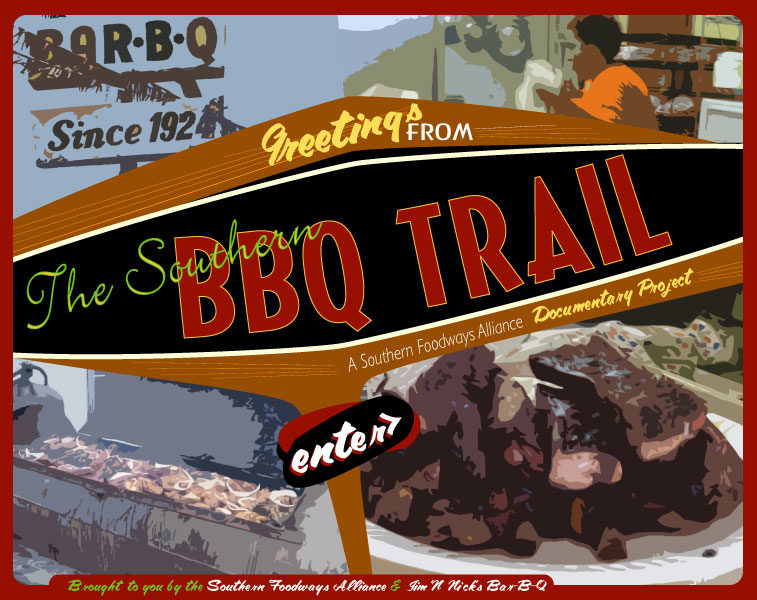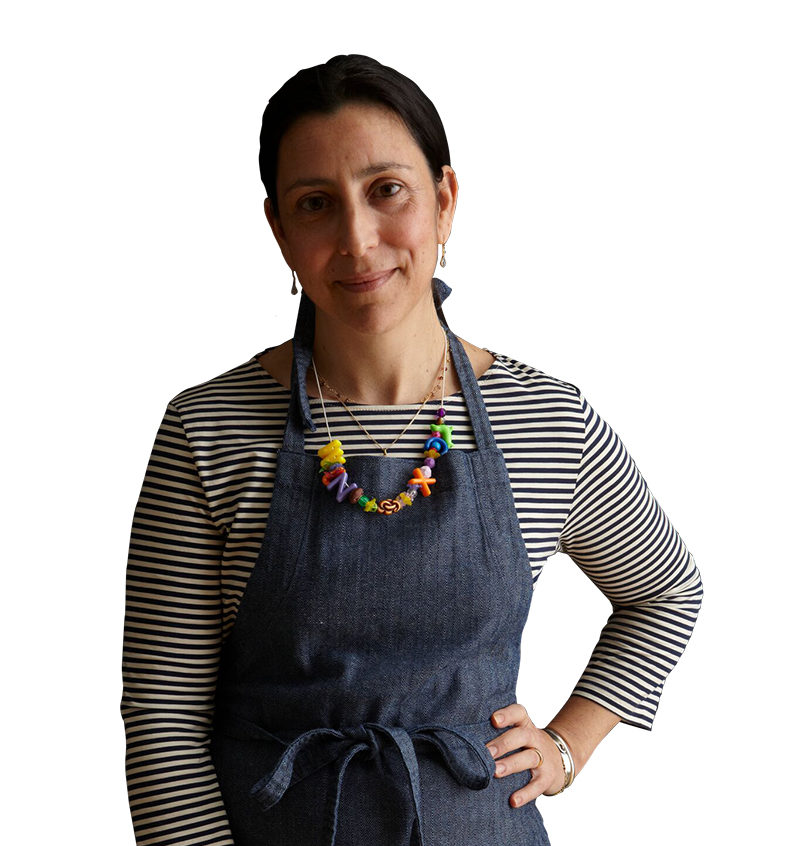“Get ten people together, and where the Irish would start a fight, Georgians will start a barbecue.” That quote, from a 1954 Saturday Evening Post article, lacks political correctness, but it packs a wallop. Rufus Jarmon, the author, drove home his point by quoting a nineteenth-century observer:
“The barbecue is to Georgia what the clambake is to Rhode Island, what a…canvasback duck [dinner] is to a Marylander, what a Saturday night pork-and-beans supper is to a Bostonian.”
In other words, barbecue, as cooked and savored in Georgia, is not merely a food. It’s an event, where the bonds of community are celebrated, the tethers of tradition strengthened. At the 2002 Southern Foodways Symposium, Jim Auchmutey of Atlanta pondered the import of barbecue at one particular type of event – the political rally:
“Eugene Talmadge kicked off his first campaign for governor in 1932 with a huge barbecue that drew 10,000 people to his hometown of McRae, in middle Georgia. Farmers donated scores of pigs and goats and cows and chickens. A local man, Norman Graham, known as the Barbecue King, was appointed to oversee the cooking, which took thirty-six hours to complete.”
“A crowd of townspeople came out to watch, as if the barbecueing and not the speechmaking were the point of it all. In The Wild Man from Sugar Creek, William Anderson described the scene on the night before, as they fired up the Brunswick stew pots: ‘Insects swirled and buzzed crazily into the string of naked light bulbs that wound over the pits giving a hard brightness to the cooking area. So many bugs flew into the kettles of stew – drawn there by its sweet aroma – that no pepper had to be added for flavor. As one of the men explained, “Bugs was good spice.’”
Alongside the tradition of political barbecues, the state also has enjoyed a long and storied commercial barbecue tradition. Among the old-line favorites are Fresh Air Barbecue of Flovilla, the tin roofed temple of pork sandwiches and slaw, which opened in 1929 and is now operated by the descendants of Toots Caston. And then there’s Harold’s Barbecue, in the shadow of the Atlanta Federal Penitentiary, where the Hembree family has been making Brunswick stew and crackling cornbread since 1947.
Barbecue in Georgia is not restricted to one style, although most pitmasters now work with hams and shoulders instead of whole hogs. On the northeastern fringe, you will find hash cooks and mull cooks. Brunswick Stew cooks are everywhere. Across the state, sauces vary widely. A mixture of vinegar and tomato predominates, with degrees of sweetness and heat varying county by county. There are exceptions, of course. Around Savannah and Columbus, and in pockets of south Georgia, mustard often replaces ketchup in sauces.
Peruse these oral histories and you will come to know more than sauce. You will learn the stories behind some of state’s fabled pits. And you will draw a bead on what Ralph McGill, onetime editor of the Atlanta Constitution, meant when he described Georgia barbecue as “a noble dish with honorable antecedents, prepared with simple ritualistic services… It rests on the stomach like a benediction and may be fed to suckling babes.”
~ John T Edge
John T. Edge, a Georgia native, is the author or editor of more than ten books, including the foodways volume of the New Encyclopedia of Southern Culture, Cornbread Nation: the Best of Southern Food Writing, and Southern Belly: The Ultimate Food Lover’s Companion to the South. He also writes for a variety of different publications, including The New York Times. You can find more of his work here.


